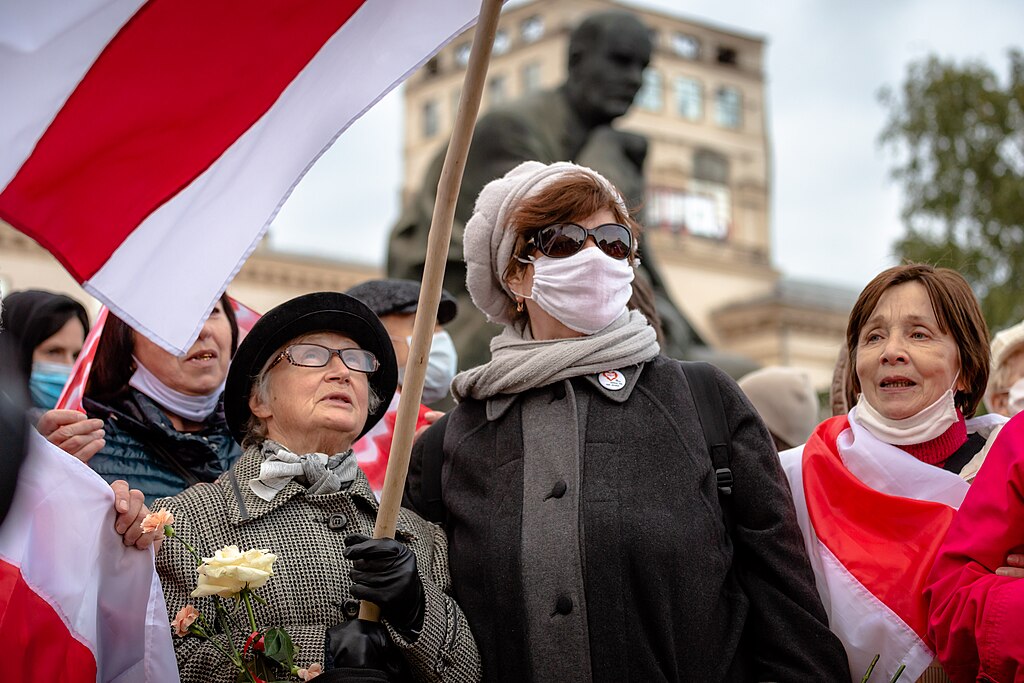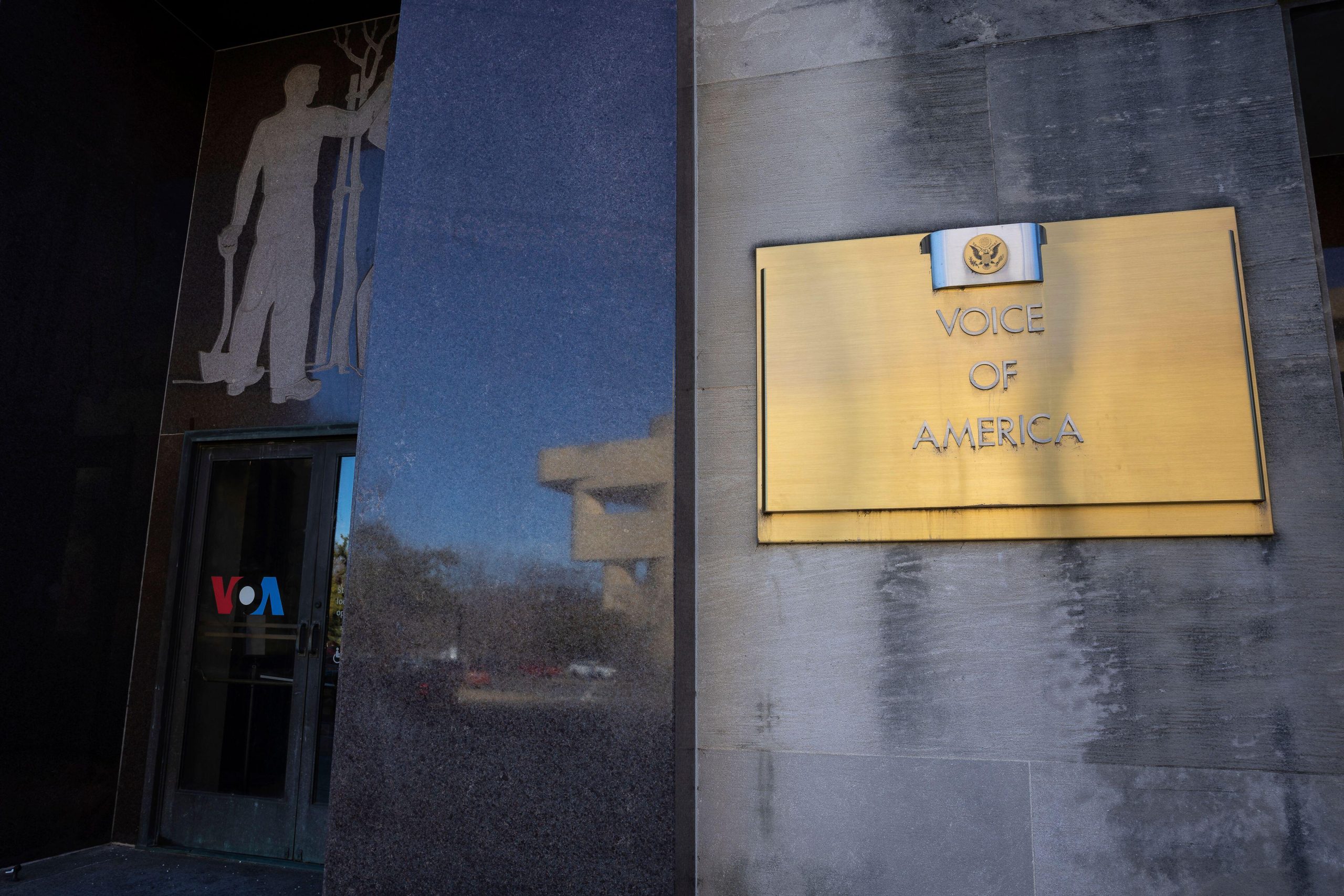Belarus is ending 2024 and entering the new year with a grim outlook. The dictator of 30 years, who maintains his grip through unprecedented repression, is holding a sham “reelection” on 26 January – again. Aliaksandr Lukashenka is threatening to shut down the internet during the election – again. Any form of protest is being brutally suppressed – again.
Perhaps Lukashenka is still haunted by the mass protests of 2020, when hundreds of thousands of Belarusians rose up against fraudulent elections, violence and repression. Either way, in the almost four and a half years that have passed since the last elections, on 9 August 2020, the repression has never ceased. In fact, it is intensifying. Speaking out – whether on the streets, on social media, through work, art or symbolic acts – results in harsh, lawless punishment.
Estimates place the number of political prisoners today at over 1300, with some arguing these are humble estimates.
Many of those in jail are Belarusians who participated in the 2020 protests. They’ve been hunted one-by-one by the so-called law enforcement and are all serving years in prison. This recently happened to young Aliaksandr Nikitsin, a tour guide and expert at a well-known Museum of Old Believers and Belarusian Traditions in Vetka town. He was detained in May 2024, and his sentence remains unknown.
Some of them used their freedom to challenge the dictator politically and for that simple democratic act they’re serving brutal sentences, often being held incommunicado for over a year and a half. Like Maria Kalesnikava, one of the resistance leaders, who was detained in September 2020, sentenced to 11 years and subjected to inhumane treatment in prison that led to life-threatening health conditions. Like Siarhei Tsikhanouski, a blogger who announced his decision to run for president, who was detained in May 2020, sentenced to nineteen and a half years and became the first political prisoner in 2020 in Belarus. Even Maksim Znak, who was a lawyer of the united team of Tsikhanouskaya and Kalesnikava. He was detained in September 2020 and sentenced to 10 years for simply doing his job.
Some have suffered in pursuit of media freedom. Like Andrei Aliaksandrau, detained in January 2020, and Katsiaryna Andreyeva, detained in November 2020, journalists who were sentenced to 14 and 8 years, respectively, for their work. Both of their partners are also imprisoned.
Artists have been attacked too. Like Ales Pushkin, a famous painter, performer and curator. For decades, he protested Lukashenka’s rule through art, including his memorable 1999 performance, when he dumped a wheelbarrow of manure at the presidential residence in the centre of Minsk. He was arrested in 2021 and died in July 2023 after being brought to hospital from prison in critical condition. He was 57.
It has been four and a half years since the mass protests, yet the repression has never ceased – not for a single day. Add to these people who have been in prison for years following 2020 are many more who’ve been arrested recently. This autumn, the crackdown targeted activists in regional towns across Belarus. In the northern town of Hlybokaye, 12 people were detained, including historian Pavel Laurynovich. In the south, 10 people were arrested in Byaroza, with another 10 in Stolin. Similar mass detentions also occurred in Baranavichy, reflecting the dictator’s “cautiousness” and wish to silence the whole country ahead of the election.
Despite the grim landscape, there are reasons for hope. Belarusian independent media, forced into exile, continue their work against all odds – Nasha Niva, Zerkalo, Euroradio and others. Belsat TV, the only channel broadcasting in Belarusian, operates from Poland. Many of its employees are imprisoned by the regime, and dozens more journalists have been jailed simply for speaking to Belsat. Over 35 media workers are serving unjust sentences. But independent media, despite bans and censorship, still reach millions inside Belarus. They are the strongest antidote to the pro-Lukashenka and Russian propaganda.
All the repressed Belarusians have more in common than just the fact they’re wrongfully imprisoned. They are united by their desire to make Belarus better.
They have families, friends, and aspirations. The price of opposing Lukashenka is shockingly high. But this burden cannot rest solely on their shoulders.
The international community must amplify their voices, remember their sacrifices, and ensure the fight for freedom in Belarus continues. Their fight is ours too. These people are the greatest hope for ridding Belarus of a ruthless dictator – this January and beyond.
Speak out for imprisoned journalists and political prisoners. We cannot normalise terror or allow dictators to feel unpunished. Send letters of solidarity to them. Mobilise attention to Belarus and the brutal repression unfolding there. Today, the world desperately needs fewer dictators. So raise your voice for Belarusians.






